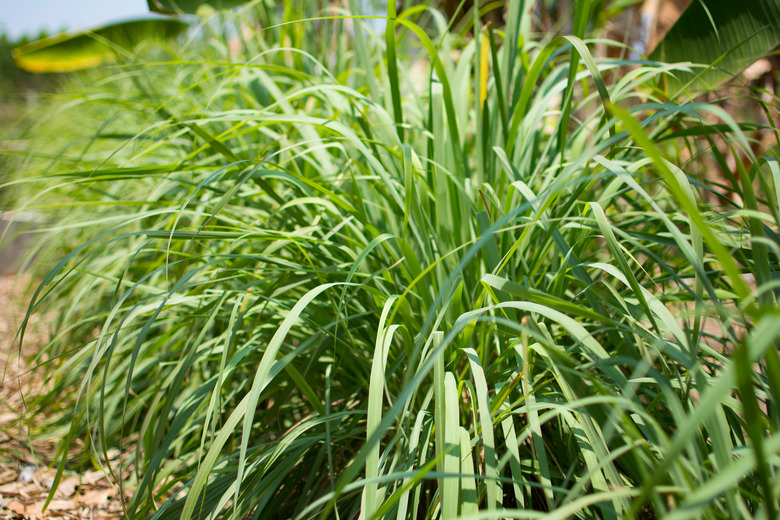Is Lemongrass An Annual Or Perennial?
We may receive a commission on purchases made from links.
Lemongrass is the common name for several species of grasses in the genus Cymbopogon. These grasses are native to tropical parts of Asia, Africa and Australia, and they are generally frost-tender and do not survive winters in cold climates. This plant is technically a perennial, but it can also be considered an annual, depending on the climate zone in which it is grown. In some zones, a lemongrass plant will overwinter, while others may be too cold for it to survive.
Tip
Lemongrass is a frost-sensitive perennial that's treated as an annual by gardeners in cooler climates.
Annual and Perennial Plants Defined
Annual and Perennial Plants Defined
The term annual refers to those plants that complete their entire life cycles within a single growing season. Generally, annuals grow from seeds, produce their own flowers and seeds, and die in a single season, and any new plants grow the following year from the seeds produced by the parent plant. Perennial plants, in contrast, survive through multiple growing seasons; although their reproductive cycles might be completed in one growing season, the parent plants will continue to grow and reproduce in subsequent seasons.
The year-after-year survival of perennial plants, however, is usually limited by their relative tolerance or intolerance of cold temperatures, and in climates where winters are colder than a given species will tolerate, the plant will usually die at the end of the growing season when the weather turns cold. When they're grown in climates where they're not winter-hardy, some perennials plants are treated as annuals by gardeners, who replant new plants each spring.
Sometimes when a perennial is grown in climates that fall just outside the climate in which the plant is fully winter-hardy, cold temperatures will cause the foliage and above-ground structure of the plant to die back, but the plant's root system will survive. In this case, the plant may survive the winter and begin to grow new foliage in the spring.
Lemongrass Behavior by Zone
Lemongrass Behavior by Zone
The Cymbopogon species most commonly grown as the garden ornamental called lemongrass (Cymbopogon citratus) is a perennial, but it is sensitive to frost and below-freezing temperatures, and in the United States, it is fully winter hardy only in U.S. Department of Agriculture plant hardiness zones 10 and 11. In these zones, the grass, which typically grows to a height of between 2 and 4 feet, will remain green throughout the winter.
In moderately cooler zones, lemongrass may survive the winter and return in the spring from its roots even though the plant's leaves die back. Lemongrass roots are typically hardy in USDA zones 8b and 9, and in these zones, the plant may return year after year as a perennial. It may be helpful to trim them back slightly and use a row cover to help protect the the plants from any severe cold snaps.
In zones colder than USDA zone 8b, lemongrass will likely not survive the winter and must be grown in the garden as an annual. Alternatively, a lemongrass plant may also be grown in a container and taken indoors when temperatures begin to fall. Over-winter the plant in a sunny room until it's warm enough to put back outside once again.
